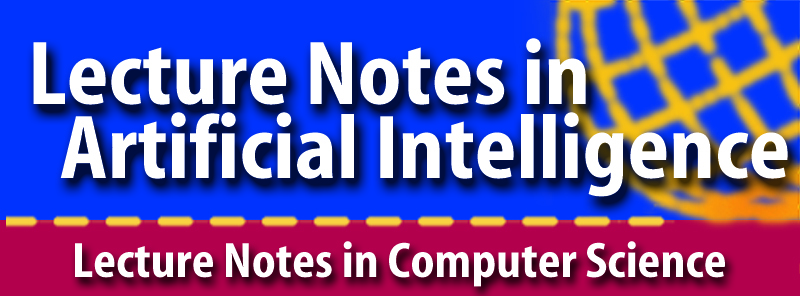 |
|
Title: Privacy Attacks on Large Language Models
Speaker: Yangqiu Song, Associate Professor, Hong Kong University of Science and Technology (HKUST), Hong Kong
Biography
Dr. Song is an associate professor at Department of CSE at HKUST, and an associate director of HKUST-WeBank Joint Lab. He was an assistant professor at Lane Department of CSEE at WVU (2015-2016); a post-doc researcher at UIUC (2013-2015), a post-doc researcher at HKUST and visiting researcher at Huawei Noah's Ark Lab, Hong Kong (2012-2013); an associate researcher at Microsoft Research Asia (2010-2012); a staff researcher at IBM Research-China (2009-2010). He received his B.E. and PhD degree from Tsinghua University, China, in July 2003 and January 2009. He also worked as interns at Google in 2007-2008 and at IBM Research-China in 2006-2007. He is now also a visiting academic scholar at Amazon Search Science and AI Team@A9 (Jan. 2022 - present).
|
 |
|
Title: Evaluating Large-Scale Learning Systems
Speaker: Virginia Smith, Assistant Professor, Carnegie Mellon University (CMU), USA
Biography
Virginia Smith is an assistant professor in the Machine Learning Department at Carnegie Mellon University. Her research spans machine learning, optimization, and distributed systems. Virginia’s current work addresses challenges related to optimization, privacy, and robustness in distributed settings to enable trustworthy federated learning at scale. Virginia’s work has been recognized by an NSF CAREER Award, MIT TR35 Innovator Award, Intel Rising Star Award, and faculty awards from Google, Apple, and Meta. Prior to CMU, Virginia was a postdoc at Stanford University and received a Ph.D. in Computer Science from UC Berkeley.
|
 |
|
Title: Trustworthy Federated Learning with Guarantees
Speaker: Bo Li, Associate Professor, University of Illinois at Urbana–Champaign (UIUC), USA
Biography
Dr. Bo Li is an Associate Professor in the Department of Computer Science at the University of Illinois at Urbana–Champaign. She is the recipient of the IJCAI Computers and Thought Award, Alfred P. Sloan Research Fellowship, AI’s 10 to Watch, NSF CAREER Award, MIT Technology Review TR-35 Award, Dean's Award for Excellence in Research, C.W. Gear Outstanding Junior Faculty Award, Intel Rising Star award, Symantec Research Labs Fellowship, Rising Star Award, Research Awards from Tech companies such as Amazon, Meta, Google, Intel, IBM, and eBay, and best paper awards at several top machine learning and security conferences. Her research focuses on both theoretical and practical aspects of trustworthy machine learning, which is at the intersection of machine learning, security, privacy, and game theory. She has designed several scalable frameworks for certifiably robust learning and privacy-preserving data publishing. Her work has been featured by several major publications and media outlets, including Nature, Wired, Fortune, and New York Times.
|
 |
|
Title: Federated Learning in Healthcare: Overcoming Data Heterogeneity Challenges
Speaker: Xiaoxiao Li, Assistant Professor, the University of British Columbia (UBC), Canada
Biography
Xiaoxiao Li is an Assistant Professor at the Department of Electrical and Computer Engineering at the University of British Columbia (UBC) starting August 2021. In addition, Dr. Li holds positions as a Faculty Member at Vector Institute and an adjunct Assistant Professor at Yale University. Before joining UBC, Dr. Li was a Postdoc Research Fellow at Princeton University. Dr. Li obtained her Ph.D. degree from Yale University in 2020. Dr. Li's research focuses on developing theoretical and practical solutions for enhancing the trustworthiness of AI systems in healthcare. Specifically, her recent research has been dedicated to advancing federated learning techniques and their applications in the medical field. Dr. Li's work has been recognized with numerous publications in top-tier machine learning conferences and journals, including NeurIPS, ICML, ICLR, MICCAI, IPMI, ECCV, TMI, TNNLS, and Medical Image Analysis. Her contributions have been further acknowledged with several best paper awards at prestigious international conferences.
|
 |
|
Title: Personalized Federated Learning
Speaker: Guodong Long, Associate Professor, University of Technology Sydney (UTS), Australia
Biography
Dr. Guodong Long is an Associate Professor in School of Computer Science, Faculty of Engineering and IT (FEIT), University of Technology Sydney (UTS), Australia. He is one of the core members of the Research Australian Artificial Intelligence Institute (AAII). He is currently leading a research group to conduct application-driven research on machine learning and data science. Particularly, his research interests focus on several application domains, such as NLP, Healthcare, Smart Home, Education and Social Media. He is dedicated on exploring the blue-sky research ideas with real-world value and impact. His group's research is funded by multiple sources of industry grants and ARC grants. He has published more than 100 papers on top-tier conferences including ICLR, ICML, NeurIPS, AAAI, IJCAI, ACL, KDD, WebConf, and journals including IEEE TPAMI, TKDE and TNNLS. His publications attract more than 10k citations. He will serve as a general co-chair for the WebConf 2025 to be hosted in Sydney.
|


















